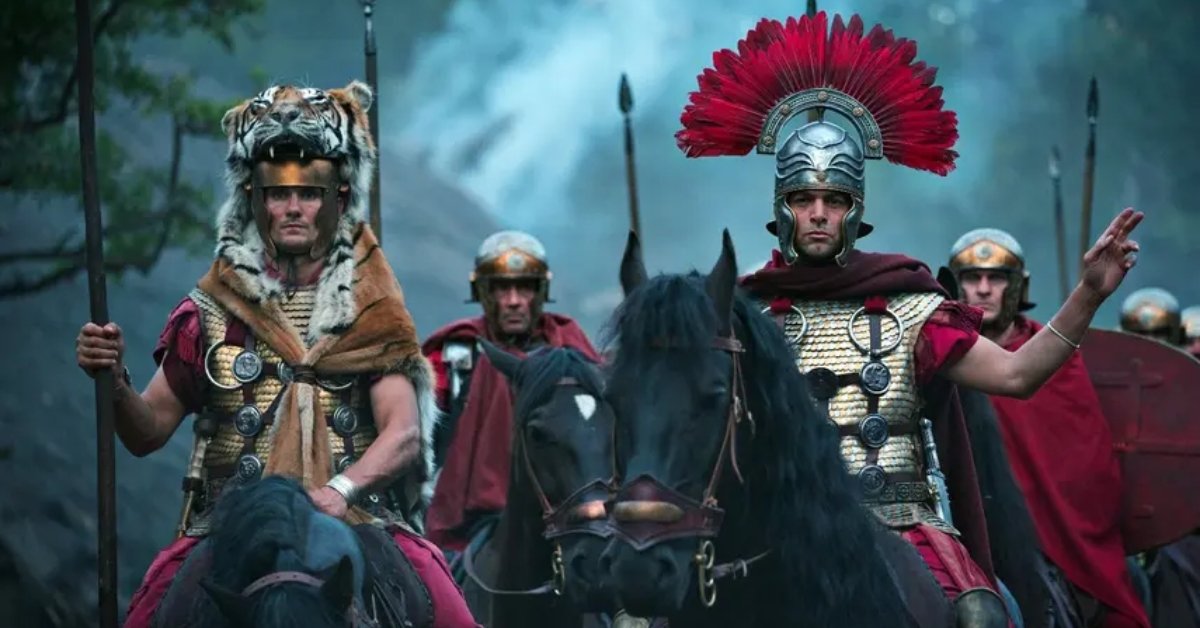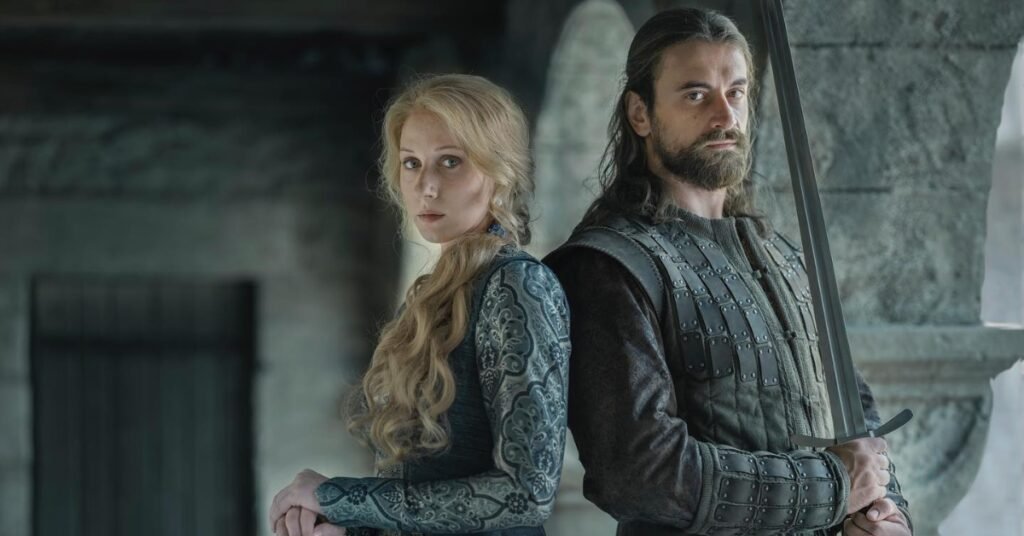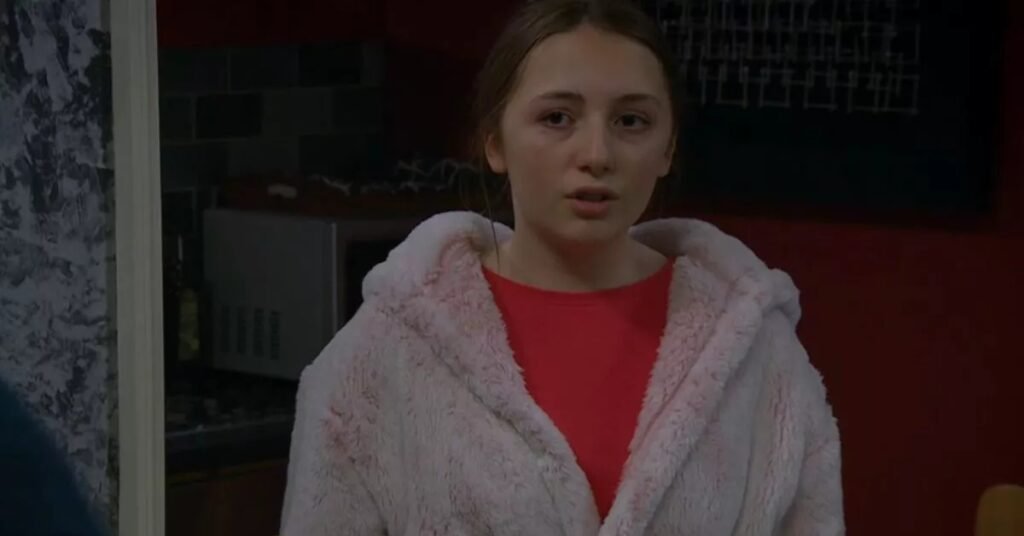Discover the best German historical dramas to binge-watch! From gripping crime stories to powerful war portrayals, immerse yourself in captivating narratives set in Germany’s past.
Table of Contents
Introduction
Are you a fan of historical dramas?
If so, we have compiled a list of ten remarkable German historical dramas that will transport you to different eras and captivate your imagination.
From gripping crime stories to heart-wrenching tales of war and personal struggles, these shows offer a unique insight into Germany’s rich history.
Let us dive into the world of these captivating series!
Babylon Berlin (2017-present)

Step into the vibrant and tumultuous Berlin of the 1920s with “Babylon Berlin.”
This visually stunning crime drama takes you on a journey alongside Gereon Rath, a police inspector from Cologne, as he investigates a series of murders in the city.
This show will keep you on the edge with a complex and compelling plot.
What is “Babylon Berlin” about?
“Babylon Berlin” is a TV show that follows the story of a police inspector named Gereon Rath, who investigates a series of murders in Berlin during the 1920s.
What sets “Babylon Berlin” apart from other TV shows?
“Babylon Berlin” stands out due to its visually stunning cinematography, complex storytelling, and compelling characters, making it a unique and captivating viewing experience.
Where and when is the series set?
The series is set in Berlin, Germany, during the Weimar Republic era, specifically in the 1920s. It portrays the city’s political and social atmosphere during that time.
Who are the main characters in “Babylon Berlin”?
The main characters include Gereon Rath, a police inspector from Cologne, and Charlotte Ritter, a young police clerk aspiring to become a detective. They play crucial roles in the show’s storyline.
Is “Babylon Berlin” based on a book or true events?
“Babylon Berlin” is based on the “Babylon Berlin” book series written by Volker Kutscher. At the same time, it incorporates elements from the books and introduces original storylines for the TV adaptation.
What language is spoken in “Babylon Berlin”?
The primary language spoken in “Babylon Berlin” is German. However, English subtitles are available for international viewers to understand the dialogue.
How many seasons of “Babylon Berlin” are there?
Currently, four seasons of “Babylon Berlin” are available for viewers to enjoy.
Can “Babylon Berlin” be watched on streaming platforms like Netflix or Amazon Prime Video?
Yes, “Babylon Berlin” is available to stream on platforms like Netflix and Amazon Prime Video, allowing viewers to watch it at their convenience.
Who created and directed “Babylon Berlin”?
“Babylon Berlin” was created by Tom Tykwer, Henk Handloegten, and Achim von Borries. They also directed several episodes of the series.
Has “Babylon Berlin” received any awards or nominations?
Yes, “Babylon Berlin” has received critical acclaim and won numerous awards, including the International Emmy Award for Best Drama Series, highlighting its exceptional quality and recognition in the industry.
Unorthodox (2020)
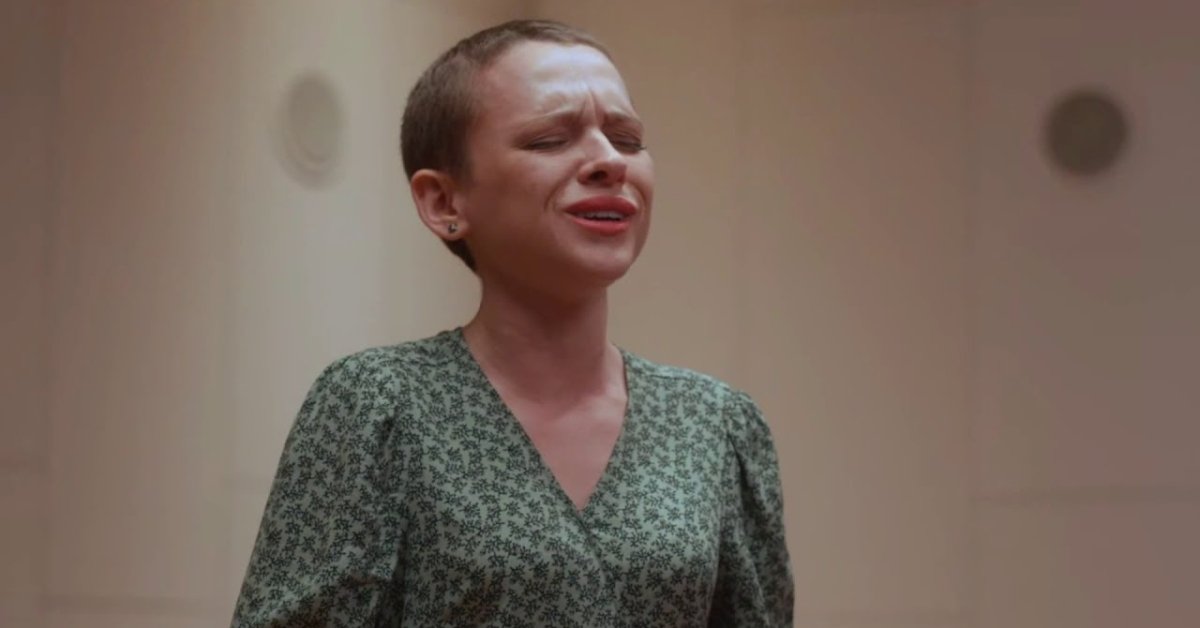
Experience the emotional rollercoaster of a young Jewish woman escaping her ultra-orthodox community in New York City to start a new life in Berlin.
“Unorthodox” offers a heartbreakingly inspiring portrayal of her journey, providing a unique glimpse into a world rarely seen on screen.
Can you list the top facts and stats about Unorthodox (miniseries)?
“Unorthodox” is a highly acclaimed miniseries known for its authentic portrayal and compelling storytelling. It explores themes of self-discovery, identity, and personal freedom. The miniseries has garnered critical acclaim and has received awards and nominations.
What is the plot of the miniseries Unorthodox?
“Unorthodox” follows the story of a young Jewish woman named Esty who leaves her ultra-orthodox community in New York City and travels to Berlin for a new life. The series portrays her journey of self-discovery and the challenges she faces along the way.
Is Unorthodox based on a true story?
“Unorthodox” is based on the memoir of Deborah Feldman, but it is a fictionalized account inspired by her experiences rather than a direct retelling of true events.
Where can I watch Unorthodox?
“Unorthodox” is available for streaming on the Netflix platform. You can watch it there.
How many episodes are there in the miniseries?
The miniseries “Unorthodox” consists of four episodes, each contributing to the overall narrative of Esty’s journey.
Who are the main characters in Unorthodox?
The main character in “Unorthodox” is Esty, played by Shira Haas. Other important characters include Yanky, Esty’s husband, and various individuals Esty encounters in her new life.
What language is spoken in Unorthodox?
The primary languages spoken in “Unorthodox” are English and Yiddish. English subtitles are available for viewers to understand the Yiddish dialogue.
Is there a season 2 planned for Unorthodox?
As of now, there are no official plans for a second season of “Unorthodox.” The miniseries was designed to be a self-contained story.
How long is each episode of Unorthodox?
Each episode of “Unorthodox” has an average runtime of approximately 50 minutes.
Who directed and produced Unorthodox?
“Unorthodox” was directed by Maria Schrader and produced by Anna Winger and Henning Kamm. They played key roles in bringing the miniseries to life.
Has Unorthodox received any awards or nominations?
Yes, “Unorthodox” has received several awards and nominations, including the prestigious Peabody Award, recognizing its excellence in television programming.
Downfall (2004)
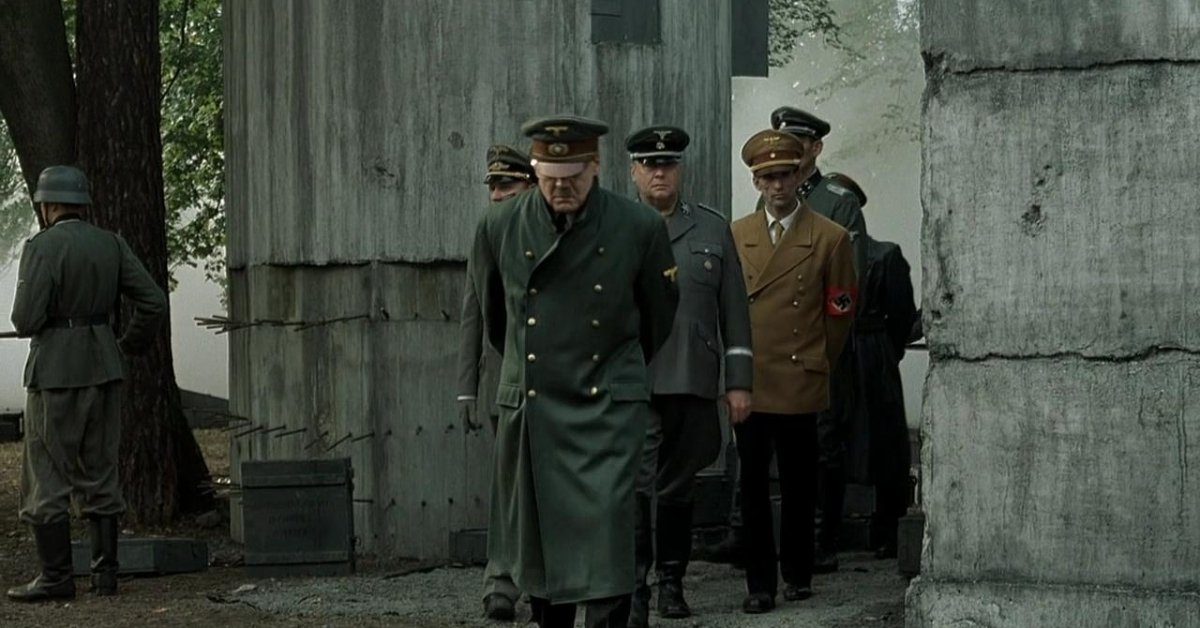
Delve into one of the darkest periods in human history with “Downfall,” a critically acclaimed film depicting the final days of Adolf Hitler’s life.
This thought-provoking and disturbing portrayal offers a fascinating perspective on a time that shaped the world.
Can you list the top facts and stats about Downfall (2004 film)?
“Downfall” is a German film released in 2004 that gained international recognition. It portrays the final days of Adolf Hitler’s life in the Führerbunker in Berlin. The film is known for its intense performances, realistic depiction of historical events, and meticulous attention to detail.
What is the plot of Downfall (2004 film)?
“Downfall” depicts the events during the last days of World War II, focusing on Adolf Hitler’s declining health, his inner circle, and the collapse of the Nazi regime. The story unfolds within the confines of the Führerbunker, providing a glimpse into the chaos and desperation surrounding Hitler and his followers.
Who are the main characters in Downfall?
The film features various historical figures, including Adolf Hitler, Eva Braun, Joseph Goebbels, Magda Goebbels, and Traudl Junge, Hitler’s secretary. These characters play significant roles in the narrative.
Is Downfall based on a true story?
“Downfall” is based on historical events and inspired by firsthand accounts and historical records. It aims to depict the events during Hitler’s final days accurately.
What historical events does Downfall depict?
“Downfall” primarily focuses on the final days of Adolf Hitler’s life, the fall of Berlin, and the collapse of the Nazi regime. It offers insights into the atmosphere and dynamics within the Führerbunker during that period.
How accurately is Downfall portraying Adolf Hitler and his inner circle?
“Downfall” is known for its meticulous attention to detail and historical accuracy. The filmmakers extensively researched the events and relied on historical accounts to recreate the characters and their interactions.
What was the critical reception of Downfall upon its release?
“Downfall” received critical acclaim upon its release. It was praised for its performances, historical accuracy, and its ability to provide a humanized portrayal of Hitler and his inner circle.
Did Downfall win any awards?
Yes, “Downfall” received numerous awards and nominations. It was nominated for Best Foreign Language Film at the Academy Awards and won several awards in Germany and other countries.
How did Bruno Ganz’s portrayal of Adolf Hitler in Downfall receive acclaim from audiences and critics alike?
Bruno Ganz’s portrayal of Adolf Hitler in “Downfall” was widely praised for its nuanced and humanized depiction. His performance showcased the complexity of the character, eliciting empathy and understanding despite the atrocities committed.
Are there any controversial aspects or criticisms surrounding the film’s depiction of history?
The film sparked discussions and debates regarding the ethical implications of humanizing Adolf Hitler and his inner circle. Some criticized the film for potentially humanizing individuals responsible for heinous crimes during the Nazi era.
How has Downfall influenced other films or popular culture references since its release?
“Downfall” has significantly influenced subsequent films and popular culture. The scene of Hitler’s impassioned rant in the bunker has become a popular meme format, often used to parody various subjects, showcasing the lasting impact of the film’s imagery and performances.
The Lives of Others (2006)
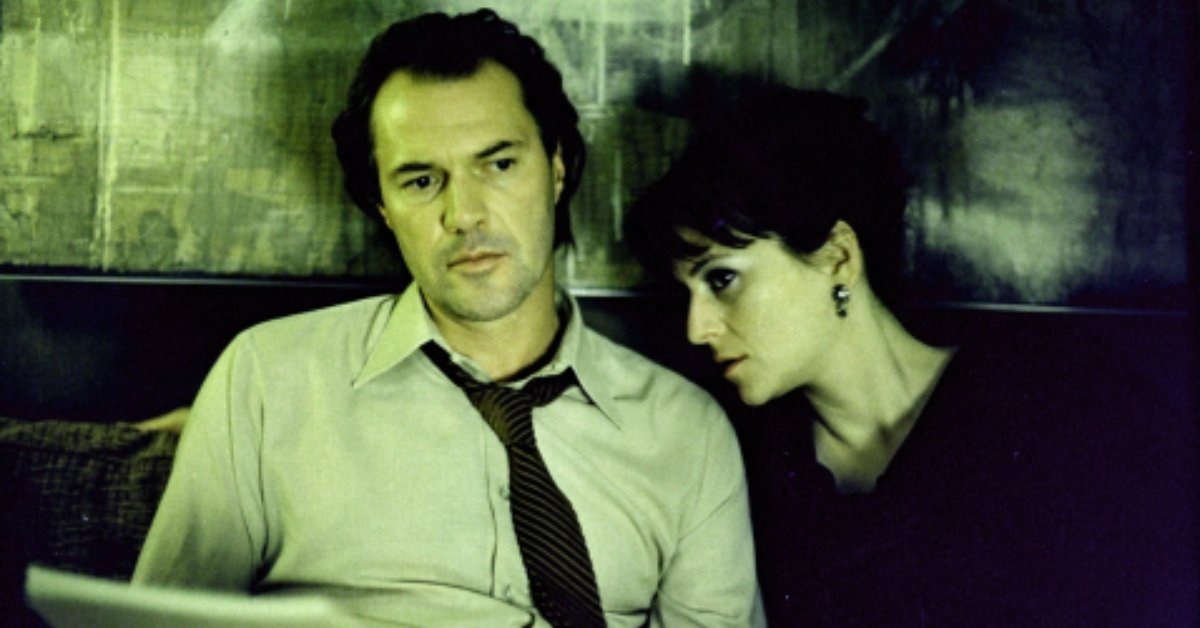
Travel back to East Germany during the Cold War with “The Lives of Others,” a captivating spy thriller.
Follow the story of a Stasi agent assigned to monitor a writer and his lover and witness the tense and thought-provoking exploration of surveillance and control.
Can you list the top facts and stats about “The Lives of Others”?
“The Lives of Others” is a German film released in 2006. It received critical acclaim for its compelling story and performances. The film explores themes of surveillance, power, and the human spirit.
What is “The Lives of Others” about?
“The Lives of Others” is a spy thriller in East Germany during the Cold War. It follows the story of a Stasi agent assigned to monitor the activities of a playwright and his lover. The film delves into the psychological effects of surveillance and the transformative power of compassion.
Who directed “The Lives of Others”?
“The Lives of Others” was directed by Florian Henckel von Donnersmarck.
When was “The Lives of Others” released?
“The Lives of Others” was released in 2006.
What language is the film “The Lives of Others”?
The film is primarily in German, with English subtitles available for non-German-speaking viewers.
Is “The Lives of Others” based on a true story?
While “The Lives of Others” is a fictional story, it reflects the oppressive atmosphere and surveillance state in East Germany during the Cold War.
What awards did “The Lives of Others” win?
“The Lives of Others” won several prestigious awards, including the Academy Award for Best Foreign Language Film, the BAFTA Award for Best Film Not in the English Language, and the European Film Award for Best Film.
Who are the main actors in the film “The Lives of Others”?
The main actors in “The Lives of Others” include Ulrich Mühe, who plays the Stasi agent Gerd Wiesler, Martina Gedeck as the actress Christa-Maria Sieland, and Sebastian Koch as the playwright Georg Dreyman.
How does “The Lives of Others” portray life in East Germany during the Cold War era?
The film vividly portrays the atmosphere of constant surveillance and fear in East Germany during the Cold War. It offers insights into the strict control exercised by the Stasi, the secret police, and the toll it takes on the lives and relationships of its citizens.
What themes are explored in “The Lives of Others”?
“The Lives of Others” explores the power of art and culture to challenge oppressive systems, the moral implications of surveillance, the complexity of human relationships, and the capacity for personal transformation.
Is “The Lives of Others” considered a critically acclaimed film?
“The Lives of Others” is widely regarded as a critically acclaimed film. It has received high praise from critics and audiences alike for its compelling storytelling, superb performances, and thought-provoking exploration of themes.
Nowhere in Africa (2001)
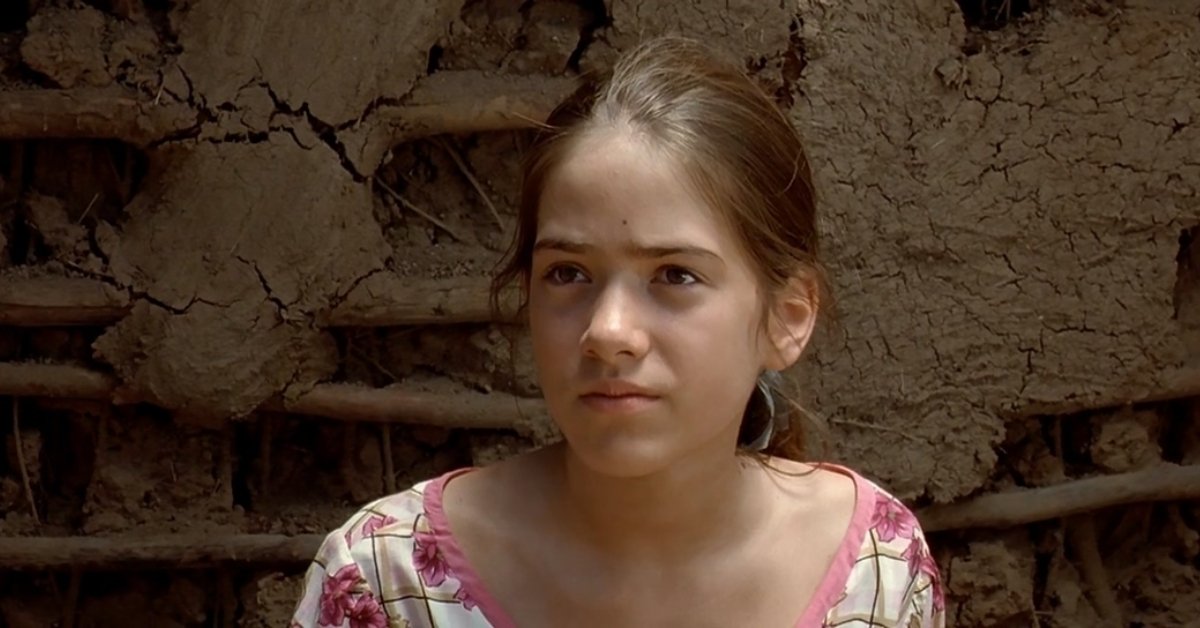
Embark on a beautiful and moving journey with “Nowhere in Africa,” a drama portraying a Jewish family’s escape from Nazi Germany to Kenya.
This film tells a tale of love, loss, and the indomitable spirit of the human soul.
Can you list the facts and stats about Nowhere in Africa?
“Nowhere in Africa” is a German film released in 2001. It is based on the autobiographical novel of the same name by Stefanie Zweig. The film explores themes of identity, family, and the impact of colonialism. It won the Academy Award for Best Foreign Language Film in 2003.
What is the plot of “Nowhere in Africa”?
“Nowhere in Africa,” tells the story of a Jewish family, the Redlichs, who flee Nazi Germany in 1938 and settle in Kenya. The film chronicles their struggles adapting to their new life, relationships with the local community, and journey toward belonging.
Is “Nowhere in Africa” based on a true story?
Yes, “Nowhere in Africa” is based on the real-life experiences of author Stefanie Zweig and her family, who also fled Nazi Germany and settled in Kenya.
Who are the main characters in the film “Nowhere in Africa”?
The main characters in “Nowhere in Africa” include the Redlich family: Walter, Jettel, and their daughter Regina. The film also explores the relationships they form with their Kenyan cook, Owuor, and other local community members.
Where was “Nowhere in Africa” filmed?
“Nowhere in Africa” was filmed in Kenya, capturing the stunning landscapes and providing an authentic setting for the story.
What awards did “Nowhere in Africa” win?
“Nowhere in Africa” won several awards, including the Academy Award for Best Foreign Language Film, the German Film Award for Best Feature Film, and the Bavarian Film Award for Best Production.
How does “Nowhere in Africa” explore themes of identity and belonging?
“Nowhere in Africa” delves into the themes of identity and belonging by showcasing the Redlich family’s struggle to adapt to their new environment while grappling with their German-Jewish heritage. The film explores how they find belonging through their connections with the local community and the land.
What is the significance of the title “Nowhere in Africa”?
The title “Nowhere in Africa” reflects the displacement and longing experienced by the characters. It represents their journey to find a place they can call home while highlighting the challenges of being caught between two cultures.
How does the film “Nowhere in Africa” portray colonialism and its impact on individuals and families?
The film portrays the impact of colonialism through the experiences of the Redlich family. It examines the power dynamics, cultural clashes, and complexities of relationships between the European settlers and the local African community. It sheds light on the privileges and challenges of being part of a colonizing group.
How has “Nowhere in Africa” been received by audiences and critics?
“Nowhere in Africa” has been widely praised by audiences and critics. It has been commended for its compelling storytelling, strong performances, beautiful cinematography, and ability to explore universal themes of identity, family, and the search for a place to call home.
Das Boot (2018-present)

Witness the horrors of submarine warfare during World War II in the tense and realistic miniseries “Das Boot.”
This gripping portrayal of a German U-boat crew will immerse you in the perilous world beneath the ocean’s surface.
Can you list the top facts and stats about Das Boot (film)?
“Das Boot” is a German war film released in 1981. It is based on a novel of the same name by Lothar-Günther Buchheim. The film provides a gripping portrayal of life on a German U-boat during World War II. It is known for its realistic depiction of submarine warfare and intense suspense.
What is Das Boot?
“Das Boot” is a German war film that takes place during World War II and follows the crew of a German U-boat as they navigate the dangers of submarine warfare.
When was the film Das Boot released?
The film “Das Boot” was released in 1981.
Who directed Das Boot?
“Das Boot” was directed by Wolfgang Petersen.
Is Das Boot based on a true story?
While “Das Boot” is a work of fiction, it is based on the novel by Lothar-Günther Buchheim, who drew inspiration from his experiences as a war correspondent during World War II.
What is the plot of Das Boot?
“Das Boot” follows the crew of U-96, a German U-boat, as they undertake a perilous mission in the Atlantic Ocean. The film explores the claustrophobic and intense conditions aboard the submarine, the psychological strain faced by the crew, and the challenges of evading enemy forces.
How long is the film Das Boot?
The original theatrical version of “Das Boot” has a runtime of approximately 149 minutes, while the director’s cut is longer, at around 208 minutes.
What language is spoken in Das Boot?
The film “Das Boot” is primarily German, with English subtitles available for non-German-speaking viewers.
Did Das Boot receive any awards or nominations?
Yes, “Das Boot” received critical acclaim and was nominated for six Academy Awards, including Best Director and Best Adapted Screenplay. It also won several awards, including two BAFTAs and a Golden Globe for Best Foreign Language Film.
Are there any notable actors in Das Boot?
“Das Boot” features a talented ensemble cast, including Jürgen Prochnow, Herbert Grönemeyer, and Klaus Wennemann, among others.
Where can I watch or stream the film Das Boot?
The film “Das Boot” is available to watch or stream on platforms like Netflix, Amazon Prime Video, and Blu-ray/DVD releases.
Charité (2017-2019)
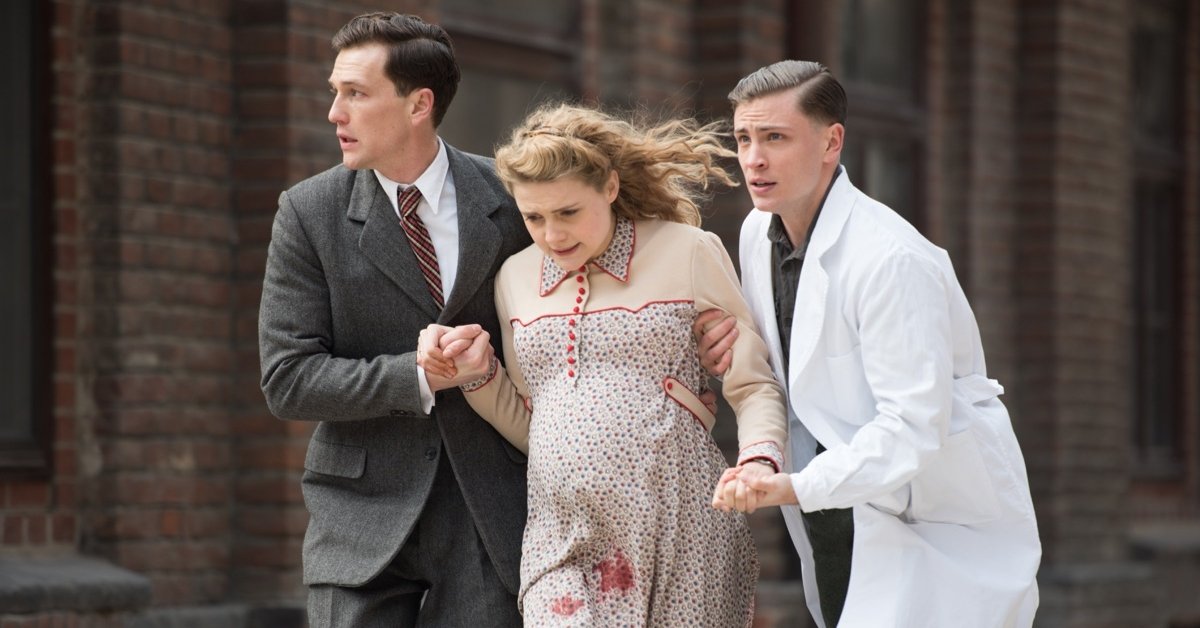
Step into the renowned Charité hospital in Berlin with the captivating medical drama series “Charité.”
Follow the lives of doctors and nurses as they navigate through some of the most challenging periods in German history, providing a unique perspective on their personal and professional struggles.
Can you list the top facts and stats about Charité (TV series)?
“Charité” is a German TV series premiered in 2017. It is set in the renowned Charité hospital in Berlin and depicts various medical cases and historical events. The series showcases the hospital’s significance and challenges during different periods of German history.
What is Charité?
“Charité” is a historical medical drama TV series in the renowned Charité hospital in Berlin. It explores the lives of doctors, nurses, and patients, providing a glimpse into the medical and social challenges of different eras.
When was Charité first aired on German TV?
“Charité” first aired on German TV in 2017.
Who are the main characters in Charité?
The main characters in “Charité” vary across seasons and storylines. However, recurring characters include doctors, nurses, and historical figures associated with the Charité hospital.
What is the storyline of Charité?
The storyline of “Charité” revolves around the medical cases, personal struggles, and historical events within the hospital’s walls. Each season explores a different era, providing insight into that time’s medical advancements and societal challenges.
Is Charité based on a true story or historical events?
“Charité” is based on historical events and real characters. The series weaves fictional storylines with the backdrop of the actual historical context of the Charité hospital.
How many seasons of Charité have been released so far?
There have been three seasons of “Charité” released.
Where can I watch Charité with English subtitles or dubbed in English?
“Charité” is available on various streaming platforms such as Netflix, where you can find it with English subtitles or dubbed in English, depending on your preference.
Has Charité received any awards or critical acclaim?
Yes, “Charité” has received critical acclaim and has been praised for its production quality, historical accuracy, and performances. It has also won several awards, including the German Television Award for Best Drama Series.
Are there any spin-offs or related shows to Charité?
There is a spin-off series called “Charité at War,” which focuses on the hospital during World War II. It explores the challenges the medical staff and patients faced in that tumultuous time.
Will there be more seasons of Charité in the future?
No information is available regarding future seasons of “Charité.” However, it is always possible that new seasons may be announced.
Ku’damm 56 (2019-present)
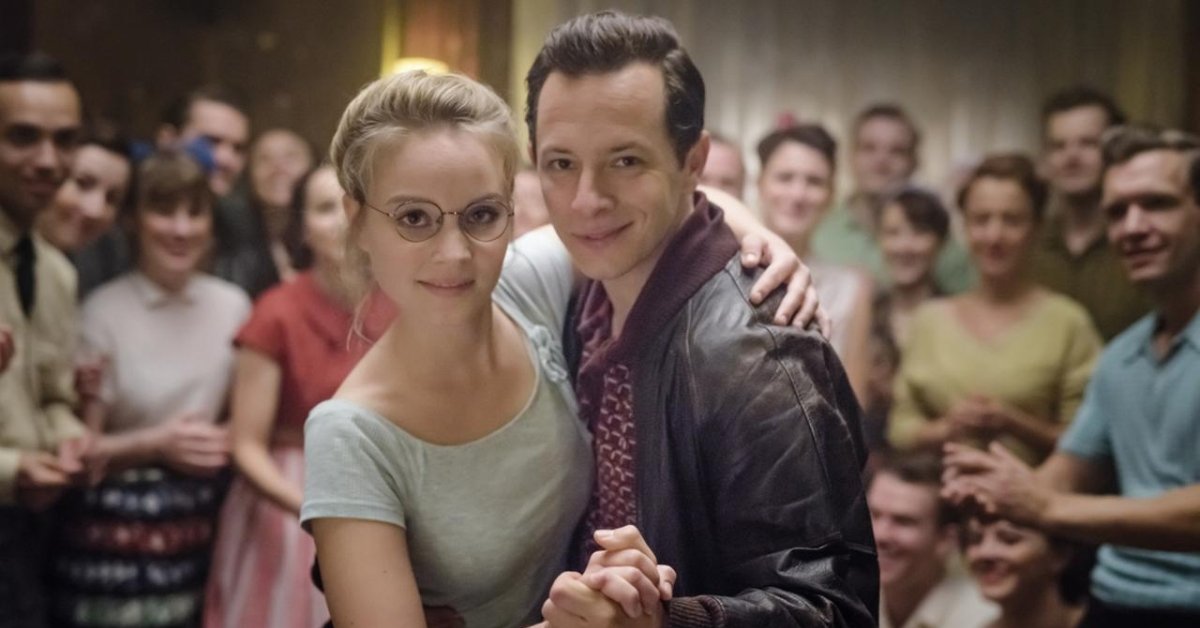
Transport yourself to 1950s Berlin with “Ku’damm 56,” a period drama that follows the lives of four sisters as they strive to find their place in the world after the war.
Immerse yourself in their challenges and societal changes during this transformative time.
Can you list the top facts and stats about Ku’damm 56?
“Ku’damm 56” is a German television film. It was first released in 2016. The film is set in Berlin in the 1950s and explores the lives of four sisters.
What is Ku’damm 56?
“Ku’damm 56” is a German television film in 1950s Berlin. It revolves around the lives of four sisters and their experiences as they navigate societal norms and pursue their dreams.
When was the German television film Ku’damm 56 released?
“Ku’damm 56” was first released in 2016.
Who are the main characters in Ku’damm 56?
The main characters in “Ku’damm 56” are the four sisters: Monika, Helga, Eva, and Gabriele. The film also features their mother, Caterina Schöllack, and other supporting characters.
What is the plot of Ku’damm 56?
The plot of “Ku’damm 56” revolves around the strict societal expectations imposed on the four sisters by their mother. Each sister desires to pursue her path, leading to conflicts and challenges within the family.
Is Ku’damm 56 based on a true story?
“Ku’damm 56” is not based on a true story, but it explores the social dynamics and challenges faced by women in 1950s Germany.
Where was Ku’damm 56 filmed?
“Ku’damm 56” was primarily filmed in Berlin, Germany, where the story is set.
How many episodes are there in Ku’damm 56?
“Ku’damm 56” consists of three episodes, each with a runtime of approximately 90 minutes.
Is there a sequel to Ku’damm 56?
Yes, there is a sequel to “Ku’damm 56” called “Ku’damm 59,” which continues the story of the Schöllack family the following year.
What awards has Ku’damm 56 won or been nominated for?
“Ku’damm 56” has received critical acclaim and has been nominated for several awards, including the International Emmy Award for Best TV Movie/Mini-Series.
Where can I watch or stream Ku’damm 56?
“Ku’damm 56” is available to watch or stream on platforms like Netflix and Amazon Prime Video, depending on your region and subscription.
Tannbach (2015)
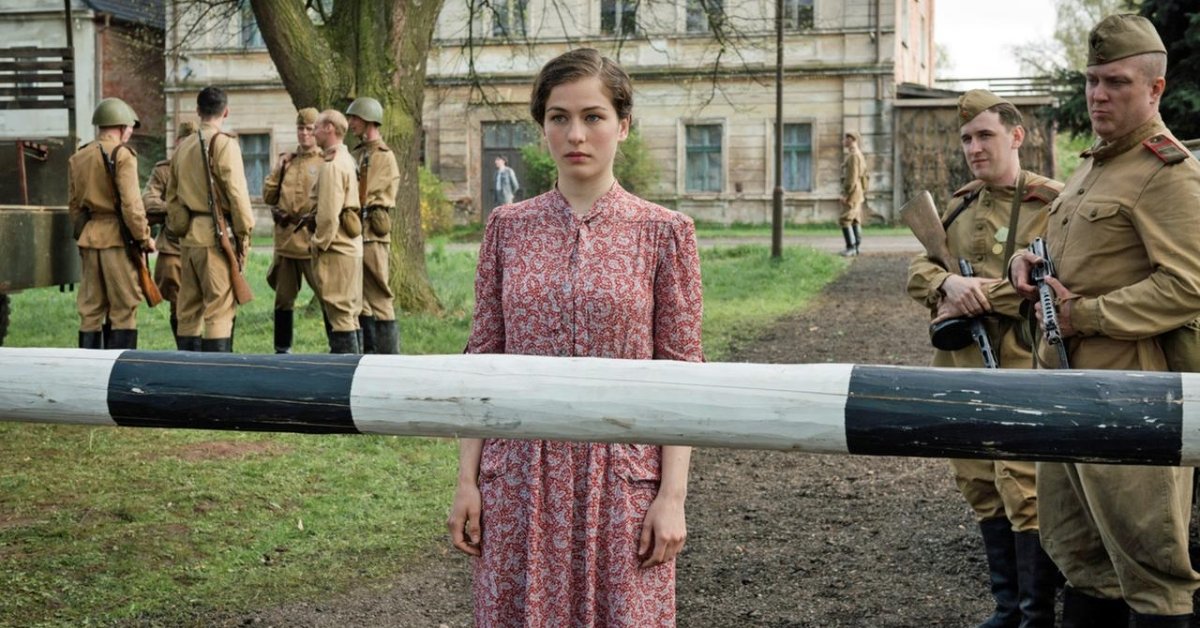
Experience the impact of the Berlin Wall on two divided villages with the miniseries “Tannbach.”
Explore the people’s lives in these communities as they cope with the separation and strive for unity in the face of a divided country.
What is the Tannbach film?
The Tannbach film refers to the miniseries “Tannbach – A Village Divided.” It is a German historical drama that explores the Berlin Wall’s impact on people’s lives in two divided villages.
What is the plot of the Tannbach film?
The Tannbach film depicts the fictional story of two neighboring villages, one in East Germany and the other in West Germany, that become divided by the construction of the Berlin Wall. It explores the residents’ struggles, conflicts, and personal stories on both sides of the border.
Is the Tannbach film based on true events?
While the Tannbach film is inspired by the historical context of the division of Germany during the Cold War era, the specific events and characters portrayed in the series are fictional.
How many parts or episodes are there in the Tannbach film?
The Tannbach film consists of “Tannbach – A Village Divided” and its sequel, “Tannbach in the Shadow of the Cold War.” Each part comprises multiple episodes.
Who are the main characters in the Tannbach film?
The Tannbach film features a diverse cast of characters, including residents of the divided villages, political figures, and military personnel. The main characters evolve throughout the series, portraying different perspectives and experiences.
Where was the Tannbach film filmed?
The Tannbach film was primarily filmed in Germany, specifically in the region of Thuringia, which provided a suitable backdrop for portraying the divided villages.
Has the Tannbach film received any awards or nominations?
The Tannbach film has received recognition through awards and nominations. It has been praised for its storytelling, historical accuracy, and performances by the cast.
Can I watch the Tannbach film on streaming platforms?
The Tannbach film is available on streaming platforms like Netflix and Amazon Prime Video, depending on your region and subscription.
Does the Tannbach film explore the impact of the Cold War on individuals and communities?
Yes, the Tannbach film delves into the profound impact of the Cold War on individuals, families, and communities, portraying the social, political, and emotional consequences of living in a divided nation.
Are there any real-life events or historical references depicted in the Tannbach film?
While the Tannbach film does not directly depict real-life events, it provides a fictionalized representation of the broader historical context of the Cold War and the division of Germany, incorporating elements that reflect the political and social climate of the time.
Is there a specific order to watch the Tannbach film and its sequel?
Watching “Tannbach – A Village Divided” is recommended first, as it sets the foundation for the story and characters. Afterward, you can watch the sequel, “Tannbach in the Shadow of the Cold War,” to see the continuation of the narrative in a different period.
Generation War (2013)
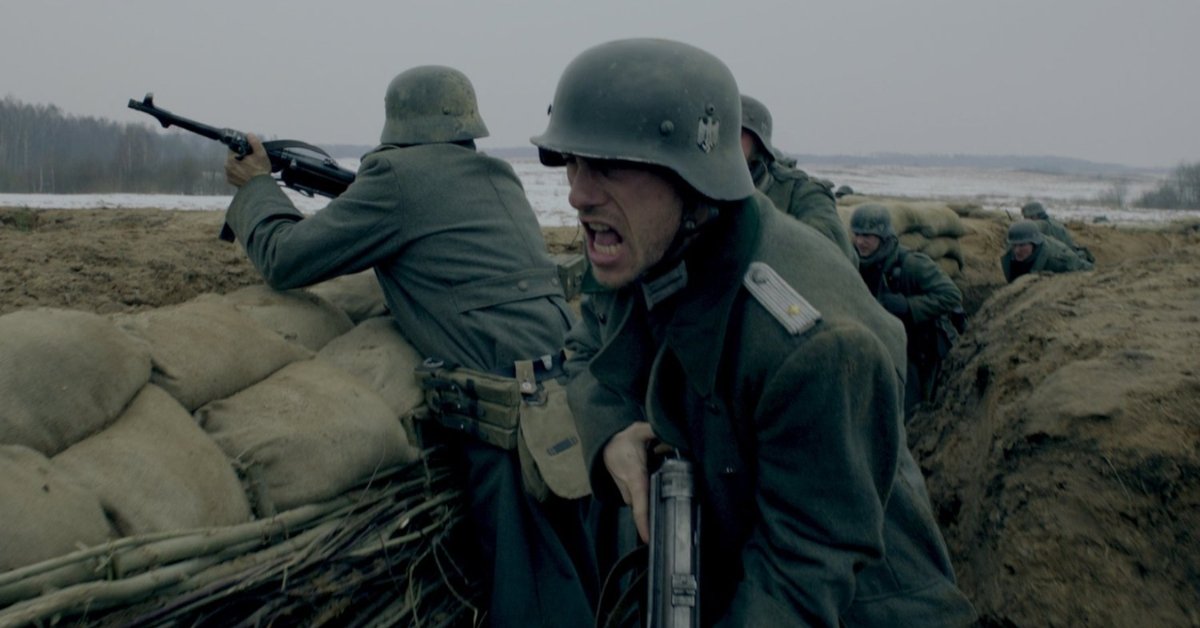
Witness the devastating effects of World War II on the lives of five friends in the powerful miniseries “Generation War.”
This moving portrayal sheds light on the human cost of war and explores the complexities of loyalty, love, and survival.
Can you list the top facts and stats about Generation War?
“Generation War,” also known as “Our Mothers, Our Fathers,” is a German miniseries aired in 2013. It consists of three episodes with a total runtime of approximately 4.5 hours. The series gained international recognition for portraying World War II from the perspective of five German friends.
What is Generation War?
“Generation War” is a German miniseries that follows the lives of five young friends who navigate World War II’s challenges and moral dilemmas. It provides a nuanced perspective on the war, examining the experiences of ordinary Germans who find themselves caught up in the tumultuous events of the era.
When was Generation War released?
Generation War was first released in Germany in 2013.
Who are the main characters in Generation War?
The main characters in Generation War are five friends: Wilhelm Winter, Friedhelm Winter, Charlotte “Charly” Jürgens, Viktor Goldstein, and Greta Müller. Each character represents a different aspect of German society and uniquely experiences the war.
Is Generation War based on a true story?
Generation War is a work of fiction and does not depict specific real-life events. However, it draws inspiration from the experiences of ordinary Germans during World War II.
How many episodes are there in Generation War?
Generation War consists of three episodes, each with a runtime of approximately 90 minutes.
What is the plot of Generation War?
Generation War follows the lives of five friends as they navigate the challenges and hardships of World War II. The series explores their journeys, moral choices, and the impact of war on their relationships and beliefs.
How accurate is Generation War in depicting World War II events?
Generation War has faced some criticism for its historical accuracy. While the series captures the experiences of German soldiers and civilians during the war, certain aspects have been deemed historically questionable or oversimplified.
What were the critical reception and reviews for Generation War?
Generation War received mixed reviews from critics. While some praised its production quality and compelling storytelling, others criticized its portrayal of historical events and characterizations. The series sparked debates about its representation of World War II and how it romanticized or distorted history.
Where can I watch or stream Generation War?
Generation War is available for streaming on various platforms, including Amazon Prime Video and Netflix, depending on your region and subscription.
Are there any similar TV series or movies to Generation War?
If you enjoyed Generation War, you might be interested in other World War II-themed productions such as “Band of Brothers,” “The Pacific,” “Unbroken,” “The Book Thief,” and “Schindler’s List.” These films and series explore different aspects of the war and its impact on individuals and societies.
Conclusion
If you are a history enthusiast or love compelling storytelling, these ten German historical dramas are perfect for binge-watching sessions.
Each series offers a unique perspective on pivotal moments in German history, from the roaring twenties to the aftermath of World War II.
So, grab some popcorn, settle in, and immerse yourself in these captivating tales. Enjoy your journey through time!
Get our best stuff sent straight to you! Join our WhatsApp Channel.
